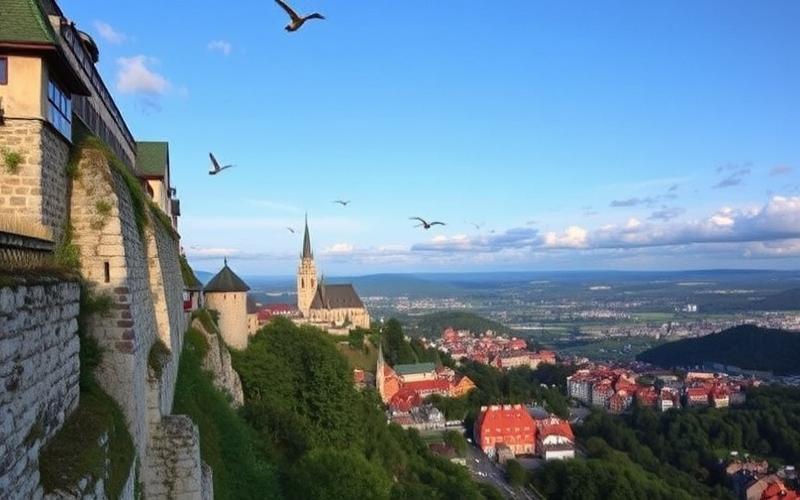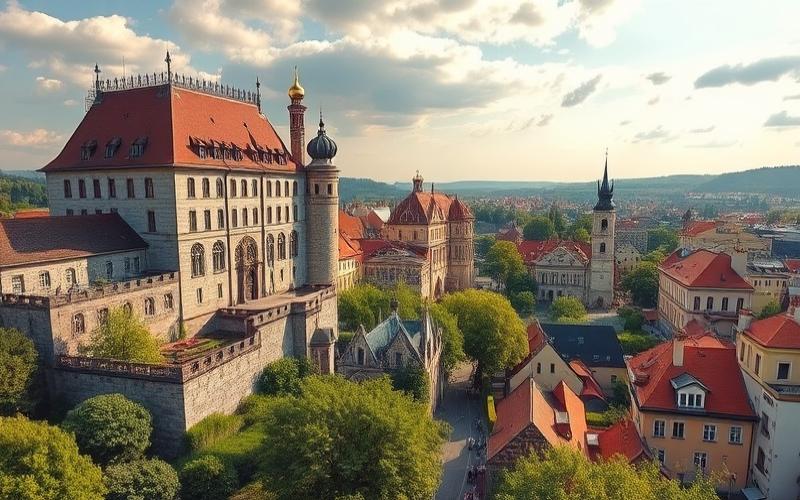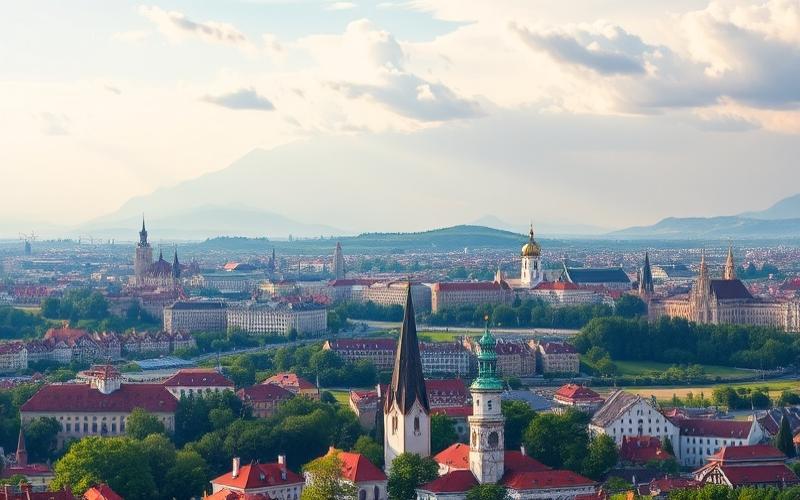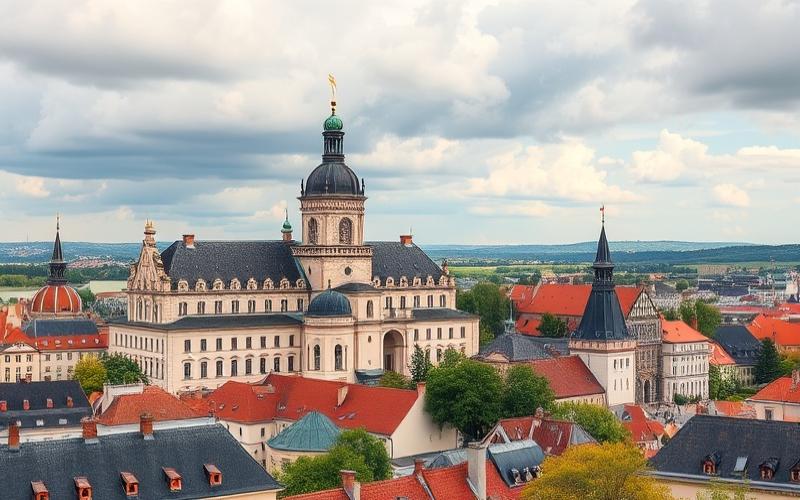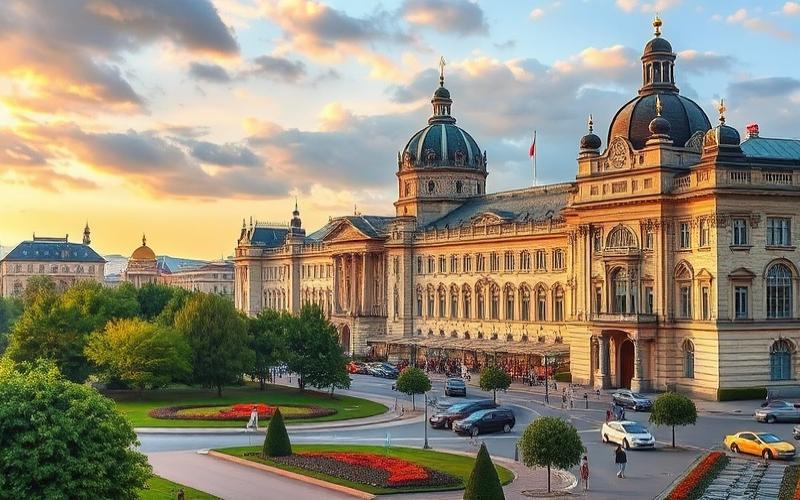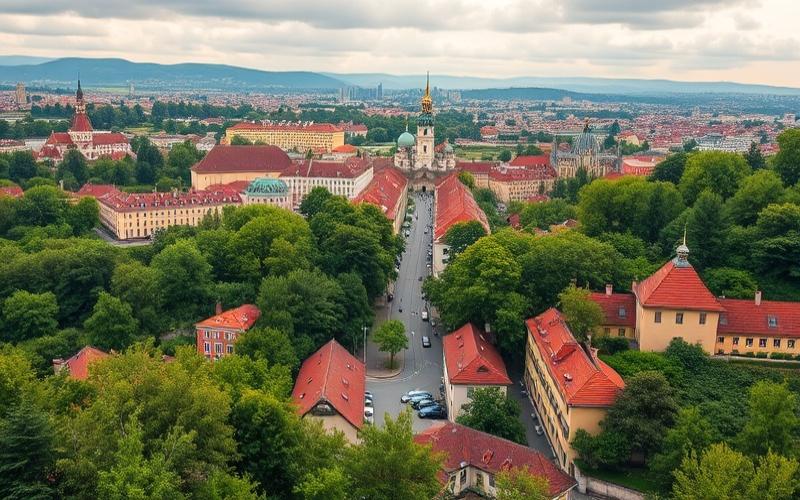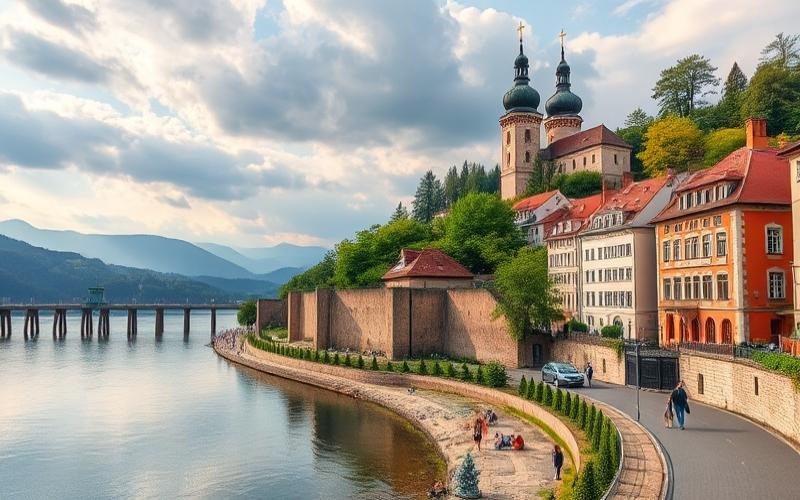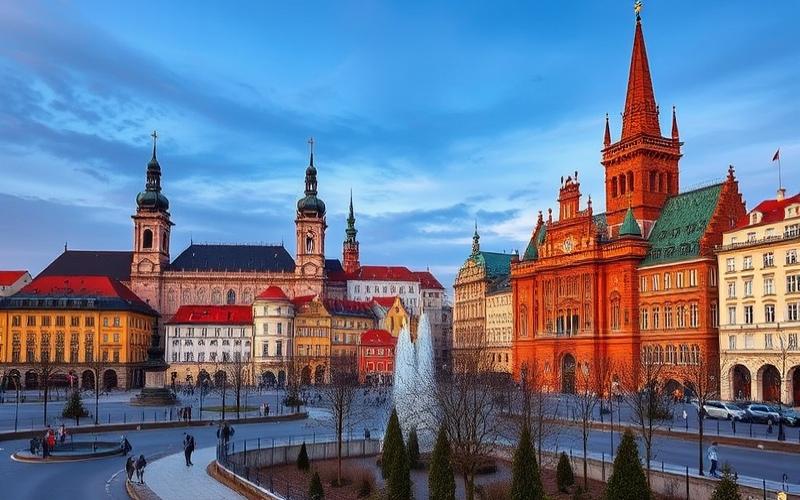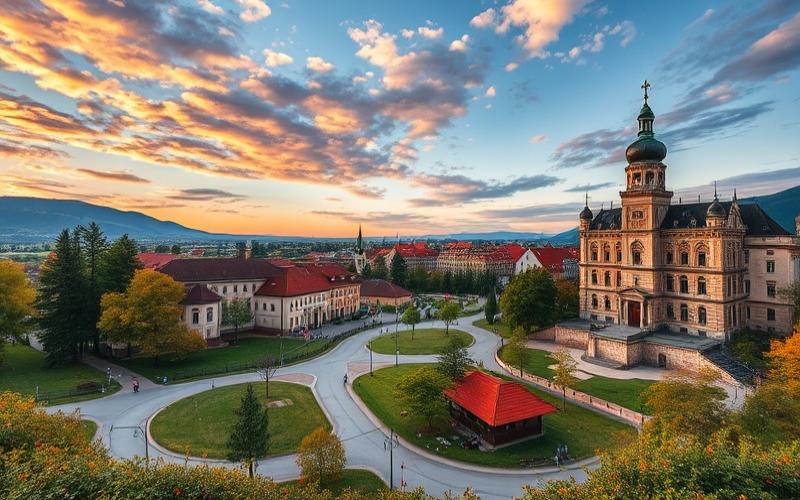
 Published on and written by Cyril Jarnias
Published on and written by Cyril Jarnias
As Poland establishes itself as an attractive destination for expatriates seeking professional opportunities and a high standard of living, focusing on safety is essential to ensure a successful relocation.
Recent economic progress, combined with a rich and welcoming culture, makes this country a land of promise. However, understanding the legal framework, immersing oneself in the local culture with discernment, and paying attention to practical advice prove crucial for navigating this unique landscape with peace of mind.
This guide aims to shed light on safety aspects to consider for confidently embarking on this Polish adventure.
Safety in Poland: Myth or Reality?
Overview of Safety Indicators in Poland
| Indicator | Recent Value | Trend |
|---|---|---|
| Homicide Rate (2022) | 0.68 per 100,000 pop. | Stable, very low |
| Total Number of Murders | 270 (2022) | Stable |
| Rape Rate (2023) | 1.29 per 100,000 pop. | Decreasing |
| Population Reporting Crimes, Violence or Vandalism (2023) | 2.8% | Record low |
| Crime Index (2025) | 28.69 (low) | Low |
| Safety Index (2025) | 71.31 (high) | High |
Crime in Poland remains one of the lowest in Europe, with a homicide rate below 1 per 100,000 inhabitants. The general trend of serious crimes, such as homicides and sexual assaults, has been declining for several years. Minor crimes (theft, pickpocketing) remain concentrated in large cities and tourist areas.
Ranking of Major Cities by Crime Rate (per 100,000 pop.)
| City | Crime Rate | Safety Index |
|---|---|---|
| Gdańsk | 6133.7 | 68.65 |
| Poznań | 6109.2 | 72.32 |
| Wrocław | 5983.4 | 74.56 |
| Krakow | 5974.2 | 75.00 |
| Warsaw | 5353.2 | 74.59 |
| Łódź | 5116.4 | 61.93 |
Local and International Perceptions of Safety
- Nearly 90% of Poles consider their country safe.
- Fear of being a victim of crime has significantly decreased: 35% in 2024 compared to 67% in 1996.
- Main concerns relate to theft and burglary, while fear of assault remains low.
- Expatriates and visitors report a high sense of security, even in large urban areas.
- Perceived safety indices for walking alone during the day are very high (83.73), and remain high even at night (62.44).
- Violent acts (assault, attacks related to origin) are perceived as very rare.
Government Measures and Prevention Initiatives
- Development of community policing, increased presence in sensitive and tourist neighborhoods.
- Crime resolution rate close to 99% for homicides.
- Prevention campaigns, particularly against theft and cybercrime.
- Modernization of police equipment and reinforcement of video surveillance in public spaces.
- Citizen awareness and partnerships with local authorities to improve prevention.
Expatriate Testimonials and Anecdotes
Many expatriates highlight the tranquility they feel:
“I feel safer here than in Paris or London, even late at night in the city center.”
A French expatriate in Warsaw reports:
“The subway is clean, well-lit, and I have never felt unsafe, even when returning home alone at night.”
Some precautions are mentioned, especially in nightlife districts or during major events, but most testimonials remain positive regarding the overall safety climate.
Current Challenges and Potential Impact on Relocation
- A sporadic rise in petty crime in certain urban neighborhoods (pickpocketing, bag snatching) requires vigilance, especially for newcomers or tourists.
- The perception of corruption remains a point of attention, although considered relatively low compared to other Central European countries.
- Challenges related to cybercrime and road safety persist, although traffic accidents are decreasing.
- The regional geopolitical situation (proximity to Ukraine, migration tensions) has not resulted in a notable increase in crime or domestic insecurity.
- The impact on relocation remains limited: stability, low crime rates, and the effectiveness of law enforcement continue to attract new residents and foreign investors.
Poland today offers a living environment perceived as safe, both by its inhabitants and expatriates, despite some localized challenges and necessary vigilance against urban petty crime.
Good to Know:
Poland, although generally safe with a crime rate below the European average, sees Warsaw and Krakow concentrating incidents of petty crime; the community policing program, combined with expatriate testimonials, highlights increased vigilance in transportation and tourist areas.
Essential Tips for a Successful Relocation
Essential Preliminary Steps Before Relocating to Poland
Study of the Safest and Most Pleasant Neighborhoods
| City | Recommended Neighborhoods | Main Characteristics |
|---|---|---|
| Warsaw | Mokotów, Sadyba, Wilanów, Saska Kępa | Residential, safe, green neighborhoods, close to international schools, good transport links, possible French-speaking atmosphere |
| Krakow | Stare Miasto | Historic, lively, secure district |
| Wroclaw | Nadodrze, Krzyki | Renovated, dynamic neighborhoods, good quality of life |
Subscribing to International Health Insurance
- Check health coverage before departure.
- Opt for international insurance including repatriation, hospitalization, and routine care.
- Keep a digital and paper copy of your insurance contract.
Learning the Basics of the Polish Language
- Master greetings, polite expressions, basic vocabulary (emergencies, health, transportation).
- Use mobile apps or take online courses.
- Learning facilitates administrative procedures and daily integration.
Integration and Adaptation Tips
Integrating into the Local Community
- Participate in community, cultural, or sporting events.
- Join local expatriate or language groups.
- Take part in local traditions and holidays to strengthen the sense of belonging.
Staying Informed About Safety Regulations
- Register with the embassy or consulate to receive security alerts.
- Regularly consult official websites for updated guidelines (safety, health, travel).
Precautions to Take in Public Spaces
- Keep personal belongings under surveillance, especially in tourist areas and public transport.
- Avoid carrying large amounts of cash.
- Prefer official taxis or recognized apps.
- Respect local rules (behavior in parks, hours, parking).
Useful Resources in Case of Need
- European emergency number: 112
- Embassy or consulate of your country.
- Expatriate assistance services and local support groups.
- Embassy mobile app to report your location in case of a problem.
Importance of Knowing Local Customs
- Observe customs regarding politeness, greetings, and punctuality.
- Inquire about dress codes in public or religious places.
- Adapt behavior to consumption habits (restaurants, shops).
- Understanding and respecting customs accelerates integration and fosters harmonious relationships with locals.
Preparing well for your relocation to Poland means anticipating practical aspects (housing, safety, health), but also opening up to the local culture for an enriching and peaceful experience.
Good to Know:
Before settling in Poland, study the safest neighborhoods, subscribe to international health insurance, and learn the basics of Polish; integrating into the local community and knowing local customs are essential to avoid misunderstandings and facilitate interactions with services.
Enhancing Daily Safety: Practical Tips
Practical Tips to Enhance Personal Safety in Poland
Knowing Local Emergency Numbers
Always carry the main numbers to contact in case of need:
- Police: 997
- Fire Department: 998
- Ambulance: 999
- European emergency number (also works in Poland): 112
Being Vigilant in Public Places
- Stay alert in tourist areas, train stations (especially Warszawa Centralna and Kraków Główny), and public transport, where pickpockets are active.
- Do not wear flashy jewelry and keep valuables out of sight.
- Prefer closed bags and keep them close to your body.
- Store important documents in your accommodation’s safe and carry a photocopy of your passport with you.
Mastering a Few Useful Phrases in Polish
| English | Polish |
|---|---|
| Help! | Pomocy! |
| Call the police | Proszę wezwać policję |
| I’m lost | Zgubiłem się / Zgubiłam się |
| I don’t speak Polish | Nie mówię po polsku |
| Where is the exit? | Gdzie jest wyjście? |
| I’m injured | Jestem ranny / ranna |
Safe Use of Public Transportation
- Purchase tickets from official outlets or via recommended apps.
- Avoid traveling alone late at night, especially in infrequent carriages or stops.
- Be attentive to your personal effects in trams, buses, and subways.
- Check lines and schedules, and plan a return route for nighttime travel.
Useful Mobile Apps for Safety
- Download apps to follow local news and security alerts (e.g., Jakdojade for transport, Alert RCB for government alerts).
- Enable geolocation on your phone to facilitate finding safe routes or in case of emergency.
- Record the contact details of your country’s embassy or consulate.
Respecting Local Regulations and Customs
- Always carry a photo ID with you; identity checks are frequent.
- Strictly respect alcohol regulations (very low blood alcohol limit for driving) and road safety (mandatory seat belt, headlights on at all times).
- Familiarize yourself with local customs, such as respecting silence in places of worship or queuing.
- Inform yourself about national holidays or events that may impact traffic or safety.
Important text to remember:
Safety in Poland relies on personal vigilance, knowledge of emergency numbers, adaptation to local customs, and preparation of a few linguistic and technological tools.
Good to Know:
Learn a few Polish phrases and record local emergency numbers to stay calm; use mobile apps like “JakDojade” for safety in public transport, and respect local customs to avoid misunderstandings.
Disclaimer: The information provided on this website is for informational purposes only and does not constitute financial, legal, or professional advice. We encourage you to consult qualified experts before making any investment, real estate, or expatriation decisions. Although we strive to maintain up-to-date and accurate information, we do not guarantee the completeness, accuracy, or timeliness of the proposed content. As investment and expatriation involve risks, we disclaim any liability for potential losses or damages arising from the use of this site. Your use of this site confirms your acceptance of these terms and your understanding of the associated risks.

